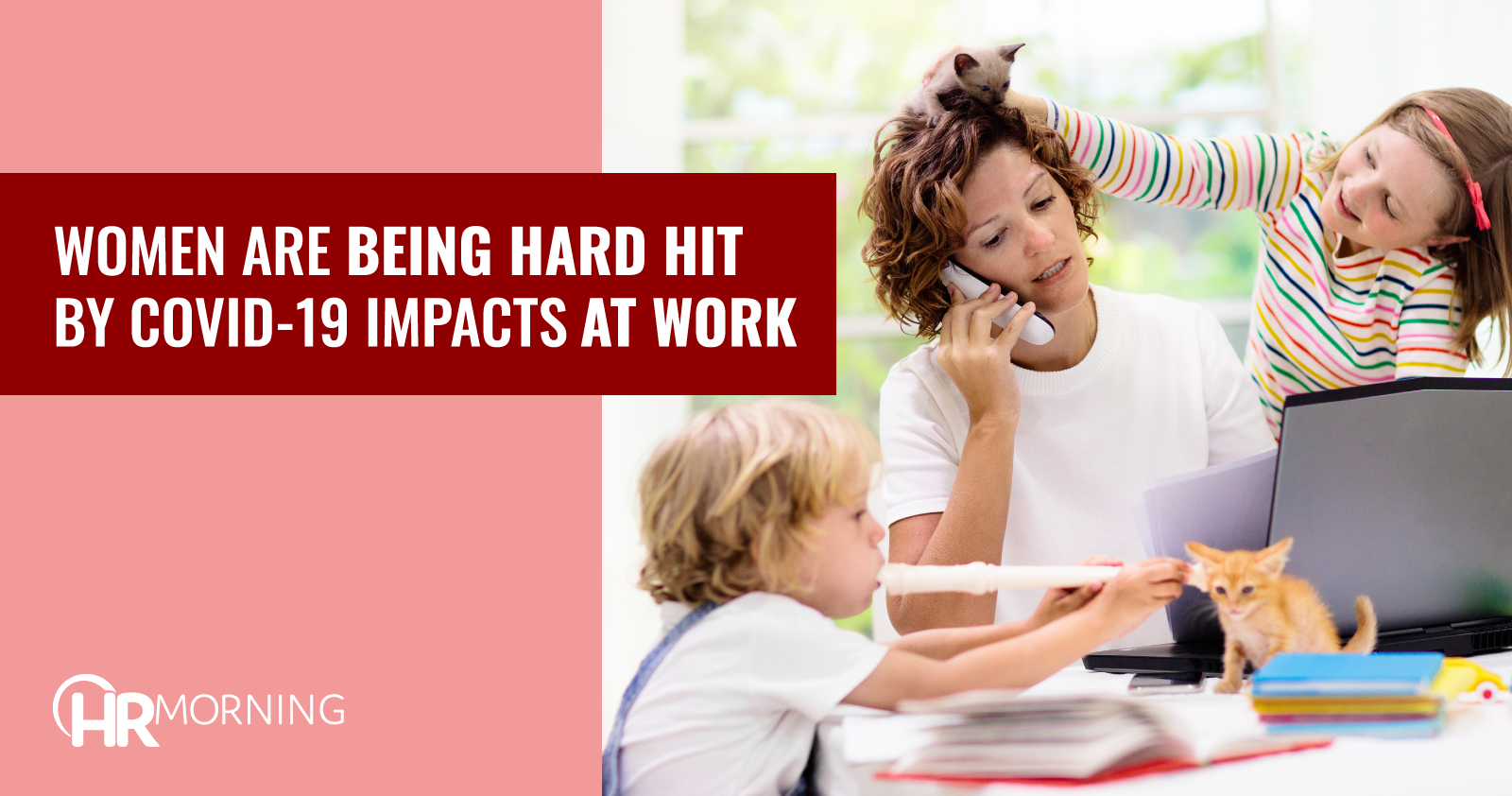Little surprise that some have coined the coronavirus pandemic a “Shecession.” Women are being disproportionately negatively impacted by the economic impacts of COVID-19.
The women on your management team are likely no exception.
These past six months have brought professional and personal challenges few could have even imagined. And there’s no end in sight for the time being.
Specifically there are three fronts where women in the workforce are taking some unique hits.
Here’s what they are and how as an HR manager you can help correct course and keep your women leaders from being unduly strained.
1. Parental leave policies push women out of the office
Fact: One-third of those companies in the Fortune 500 offering paid parental leave offer twice as much leave to mothers as to fathers.
That’s the finding of a recent study by Ball State sociology professor Richard Petts and Davidson College sociology professor Gayle Kaufman.
Generous, right? Well …
The not-so-subtle message being sent: Women are the ones expected to sacrifice their jobs to take care of their families.
As many schools in the U.S. started virtually this academic year, those policies lead many women to have to stay home with children.
So what can your company do about it? Ideally, you offer equal leave in equal amounts to both mothers and fathers.
If that poses too much of a financial burden, you might take the lead of Payroll and benefits provider Gusto.
It offers paid leave based on whether an employee is a “primary” or “secondary” caregiver rather than what an employee’s gender is.
That removes expectations and stereotypes and lets employees make decisions based on their families’ best interests.
2. The retirement savings gap is only going to get wider
That type of shift could also help women save more for their golden years.
Even before the pandemic, women’s total median household savings were just a third of what men have socked away. So finds Transamerica Center for Retirement Studies.
That’s due to a whole host of things from wage inequities to the fact that women tend to take more time out of the workforce when they have children.
But COVID-19 is expected to make this situation even worse.
Women have been unemployed or underemployed in disproportionate numbers during the pandemic. They were laid off in greater numbers and were more likely to have their hours reduced.
Others chose to scale back since the coronavirus took hold. More than a quarter (27%) of mothers reduced their working hours since the onset of the pandemic, vs 16% of fathers.
And the less they make, the less they’re putting in their 401(k)s.
But women are also at a disadvantage in the way they grow the money in those plans.
Women are more conservative in their investing than men, says Michelle Connell, CFA and owner of Portia Capital Management, LLC. Just 32% of women are willing to take average or above-average investment risk compared to 52% of men.
Open enrollment is fast approaching. Talk to your 401(k) provider about retirement-planning sessions that are geared specifically toward helping women with their savings goals.
Also, share any tips and best practices you come across in your company newsletter or on your firm’s intranet.
One example: Wiserwomen.org is a website tailored specifically to women that focuses on providing retirement planning help and useful tech tools.
3. Women are carrying the lion’s share at home
Of course retirement is likely far off for many of your women leaders, especially if they have school-age children.
But many of them are now juggling the equivalent of at least two full-time jobs during the pandemic.
Women are still performing 76.2% of total hours of unpaid care work. That’s more than three times as much as men, according to the International Labour Organization.
They’re taking the lead on homeschooling (64%) and childcare (60%), confirms a UBS Global Wealth Management survey, all while trying to do their jobs at the levels they always have.
The solution here? Cultivate a culture of compassion. Women are feeling stretched to the limits in all directions. Meetings may have to get cancelled at the last minute, technology won’t always cooperate – encouraging everyone to work with empathy and patience is one of the greatest benefits you can offer now.
And don’t simply be reactive after that deadline gets missed. HR needs to set the tone that there’s a new flexibility and understanding of these unprecedented circumstances before there’s an issue.
Remember – these women are your high achievers – that’s a big part of the reason they’ve risen to management roles after all. So they’re going to do everything it takes to “do it all” even if that leads to burnout.
By making it clear everyone will be bringing additional compassion to company culture can go a long way towards keeping it from getting that far.


